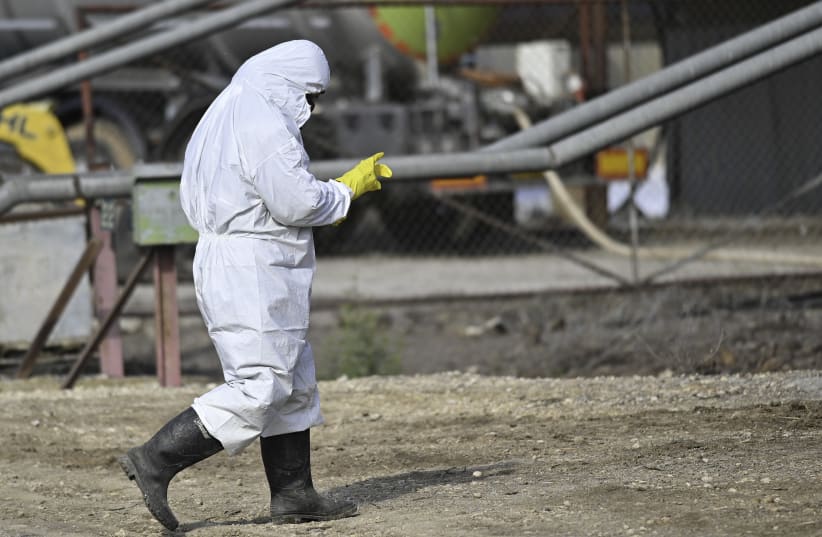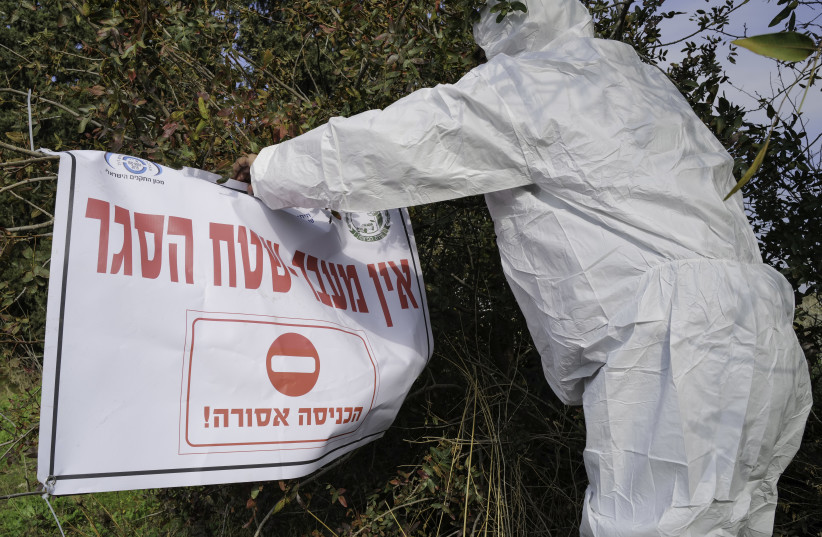Another avian influenza hotspot was reported in the town of Nahalal in northern Israel on Monday, with about 42,000 turkeys reportedly infected with the virus, according to the Agriculture Ministry.
The newest outbreak comes just a day after two new outbreaks of the virus were reported in northern Israel on Sunday, as the virus continues to spread in Israel and around the world.
The two hotspots were located in the towns of Gadish and Ne’ot Golan. In Gadish, about 7,400 infected chickens were found in two coops. In Ne’ot Golan, about 14,000 turkeys were found to be infected.
The veterinary services are operating in an emergency format and continuing to actively locate outbreaks in northern Israel and isolate the hotspots. Eggs produced in Gadish are being kept out of the market.
“This is an infection event of a magnitude we have not experienced here before,” said Agriculture Minister Oded Forer on Sunday.
“Each new hotspot is a warning sign that directs us to work to increase the biological safety of all chicken coops in Israel,” he said. “Agriculture Ministry employees work in an emergency format, with increased forces, and work day and night to handle every site to allow a return to routine as soon as possible.”
Forer recently instructed his office to raise the egg quotas for farmers in Israel and to open the market for imports due to expectations of an egg shortage in the coming months. The minister is operating an inter-ministerial command room to handle the continuing bird flu outbreak in the country.
All of the outbreaks in Israel so far have been due to the H5N1 subvariant.
Over 8,000 migratory cranes have died due to the virus in a continuing outbreak in the Hula Valley. A number of additional outbreaks have been reported at farms in northern Israel in recent weeks and months.
Hundreds of thousands of birds migrate through Israel on their way to Africa during this season, raising the risk of bird flu outbreaks. The Agriculture Ministry has called on all farmers to follow directives and ensure that their birds are kept separate from wild birds.
Since 2006, there have been cases of bird flu detected in Israel almost every year.
Amid the spike in bird flu outbreaks, the Health Ministry stressed that the public should only buy poultry and eggs from regulated places and ensure that eggs have a seal of inspection. The public should also make sure to properly, hygienically, and thoroughly cook poultry and eggs and should keep distance from wild birds.
A high number of bird flu outbreaks have been reported throughout Europe, Africa, and Asia in recent weeks, mostly due to the H5N1 subtype, according to the World Organization for Animal Health.
The OIE has urged countries to increase surveillance for high pathogenicity avian influenza (HPAI) outbreaks, as the virus has been reported in over 40 countries since July.
The H5N1, H5N3, H5N4, H5N5, H5N6 and H5N8 subtypes of HPAI are circulating in bird and poultry populations across the globe, sparking concern at OIE which called this an “unprecedented genetic variability of subtypes... creating an epidemiologically challenging landscape.”
Germany’s Federal Research Institute for Animal Health, the Friedrich Loeffler Institute, told the German Deutsche Presse-Agentur (dpa) that Europe is experiencing its “strongest avian flu epidemic ever.”
The institute added that “there is no end in sight” as the virus spreads throughout the continent and around the world, with new cases reported on a daily basis.

